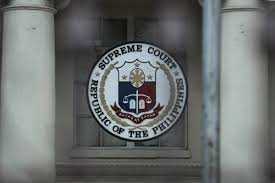Just because a candidate did not have enough resources does not mean he cannot exercise his political right to run for public office, the Supreme Court has affirmed.
This ruling came as part of a 16-page decision issued on July 30, 2024, overturning the Commission on Elections (COMELEC) resolutions that canceled the Certificate of Candidacy (COC) of Juan Ollesca in the 2022 presidential elections.
In its decision, the Court declared, “The Petition for Certiorari is GRANTED. The December 13, 2021 Resolution of the Commission on Elections Second Division and January 3, 2022 Order of the Commission on Elections En Banc in SPA No. 21-140 (DC)(MP) are ANNULLED and SET ASIDE."
The Case
On October 7, 2021, Ollesca filed his COC to run for president in the 2022 National and Local Elections.
Identifying himself as an independent candidate and an entrepreneur, Ollesca sought the presidency despite having little name recognition beyond his local area.
In response, the Comelec Law Department filed a petition to declare Ollesca a nuisance candidate, arguing that he was largely unknown to voters and lacked the resources necessary for a nationwide campaign.
The department contended that a presidential candidate should be widely recognized, especially on a national level.
Ollesca refuted these claims, arguing that the petition was based on speculative claims and lacked factual evidence to prove that he lacked a genuine intent to run or that he was attempting to mislead voters.
He further pointed out that the poll body was erroneously introducing a property qualification, which is inconsistent with the Constitution.
The Comelec Second Division upheld the petition in its December 13, 2021 resolution, concluding that Ollesca was unable to show the financial means to mount a nationwide campaign.
The commission claimed that his filing undermined the election process and indicated a lack of genuine intent to seek the presidency.
This decision led Ollesca to appeal to the Supreme Court.
Supreme Court ruling
The Court ruled in Ollesca’s favor, declaring that the Comelec had committed grave abuse of discretion by canceling his COC.
It criticized the poll body for unfairly shifting the burden of proof onto Ollesca, assuming that his lack of financial capacity and public recognition automatically made him a nuisance candidate.
The Supreme Court pointed out that a nuisance candidate is someone who lacks a genuine intention to run for office, with actions or circumstances showing a lack of intent to serve the public.
It further explained that a candidate's lack of funds or political party affiliation should not automatically disqualify them, unless clear evidence is presented that their candidacy is meant to mock or cause disrepute to the election process.
“From the foregoing, it appears that the Comelec has the propensity to employ a 'cookie-cutter motion' that generally alleges a candidate's lack of financial capacity to wage a national campaign in an attempt to shift the burden of proving bona fide intent to run for public office upon said candidate,” the Court’s ruling stated.
The Supreme Court also stressed that while the Comelec can consider a candidate’s inability to organize a national campaign or their lack of support from political groups, such decisions must be based on solid evidence.
In Ollesca's case, the Court determined that the Comelec had relied too heavily on sweeping allegations about his financial incapability without presenting concrete proof of how his candidacy would undermine the election process.
“Unfortunately, in this case, in declaring petitioner as a nuisance candidate, the Comelec simply relied on a general and sweeping allegation of petitioner's financial incapability to mount a decent and viable campaign, which is a prohibited property requirement," the Court concluded.
Ultimately, the ruling emphasized the importance of ensuring that the electorate’s will is faithfully represented, and that candidates be evaluated based on genuine intent rather than assumptions of financial capability.
#WeTakeAStand #OpinYon #OpinYonNews #SupremeCourt #COMELEC

